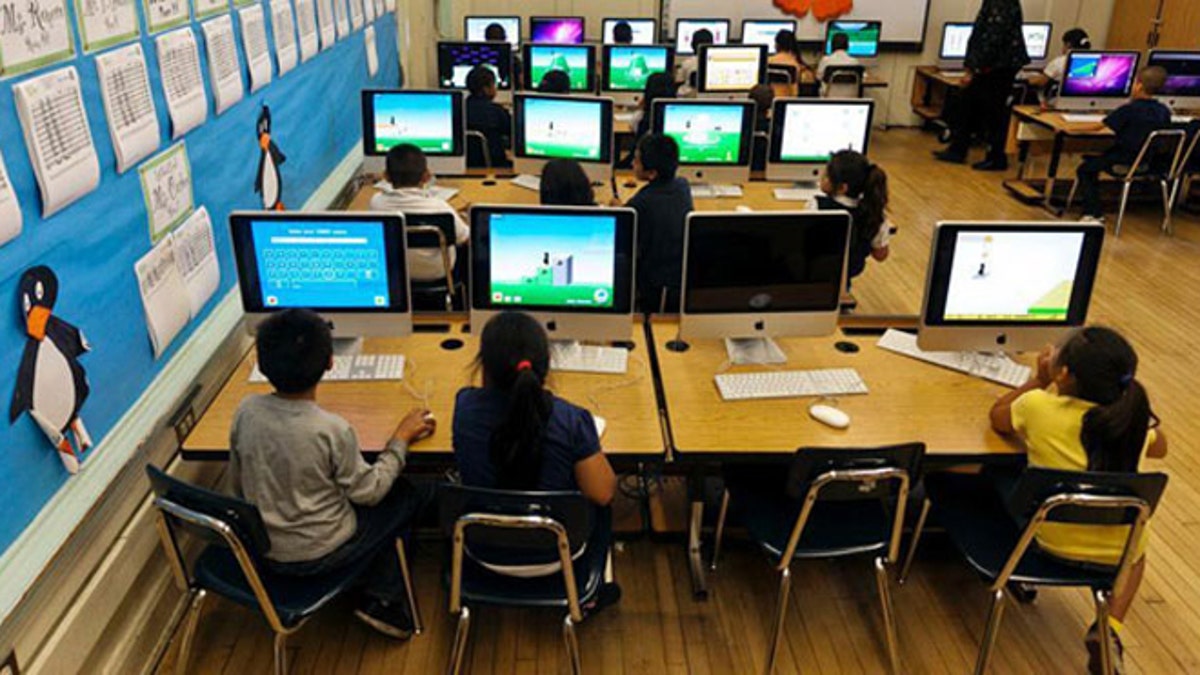
(AP Photo)
When Michael Conti learned a federal appeals court had ruled to lift so-called net neutrality regulations, he thought of his kids. Not his own children, but the more than 10,000 students who study at the online charter school he runs.
“It is a concern," said Conti, CEO of PA Cyber, a Pennsylvania-based virtual charter school. "Net neutrality was created to keep everything level, and [with the ruling], it seems we are going backward. The Internet was created to be a free and open exchange.”
The ruling strikes down FCC regulations that say web providers must charge the same amount for all Internet content, even if some, such as streaming video, takes more of a toll on the network. Conti is concerned about the ruling's potential ramifications for school's like his, and even traditional schools which increasingly rely on web-based instruction for both classroom instruction and homework.
"It seems we are going backward. The Internet was created to be a free and open exchange."
Teachers in schools across the country have been depending more and more on supplementing homework assignments with videos and other material that is publicly and easily available to anyone with a basic Internet connection. Students of virtual charter schools, often home-schoolers or children with special needs, depend almost exclusively on web-based instruction.
But with the end of net neutrality, Internet service providers could charge more for use of particular web sites like YouTube, and that could become costly for the families of students who need unfettered access to Internet for their studies. Conti said the cost of an Internet connection at home is provided to students at his school, and pledged that any increased cost will not be passed on to them. But that promise could become hard to keep, if Internet service providers choose to jack up the cost of receiving video via the web.
“We haven’t had a chance to really experience what could happen, but it will be interesting to see what develops over time,” Conti said.
Most school officials reached by FoxNews.com said it is too soon to gauge any impact of the ruling, but all said they are keenly monitoring the situation and hoping for the best.
Tania Clow, a spokeswoman for Florida Virtual Schools, also a virtual charter school, told FoxNews.com that the only way to provide students with high quality online learning for students is with “robust, affordable Internet connections.”
“Any scenario that would prevent students, kindergarten through college, from accessing highly interactive content, such as streaming videos or game mechanics could have potential impact on students," Clow said. "How much so would be speculation. The potential impacts should be carefully studied.”
The law the court struck down requiring Internet service providers to treat web traffic equally was originally passed in 2010. It said companies like Verizon and Cox Communications had to charge the same rate for all content -- whether it be a news article or a bandwidth-hungry video from YouTube. The latest ruling means providers now have free rein to charge users what they see fit and could even introduce tiered pricing plans, where charges would be added on depending on what websites a user would want to visit.
“A broadband provider like Comcast might limit its end-user subscribers’ ability to access The New York Times website if it wanted to spike traffic to its own news website,” the judge's ruling itself noted.
Major ISPs -- including Verizon, Comcast and Time Warner Cable -- were all quick to release statements saying that they do not intend to start tinkering with pricing and add-on fees, but that has not stopped the FCC from saying that they are considering an appeal against the ruling.
The president of the American Library Association, Barbara Stripling, wrote in a op-ed for Wired last week that the ruling, “flies in the face of intellectual freedom.”
“An open Internet is essential to our nation’s educational achievement, freedom of speech and economic growth,” she said in the column.
“School, public and college libraries rely upon the public availability of open, affordable Internet access for school homework assignments, distance learning classes, e-government services, licensed databases, job-training videos, medical and scientific research, and many other essential services,” Stripling also said.
“We must ensure the same quality access to online educational content as to entertainment and other commercial offerings. But without net neutrality, we are in danger of prioritizing Mickey Mouse and Jennifer Lawrence over William Shakespeare and Teddy Roosevelt. This may maximize profits for large content providers, but it minimizes education for all.”
